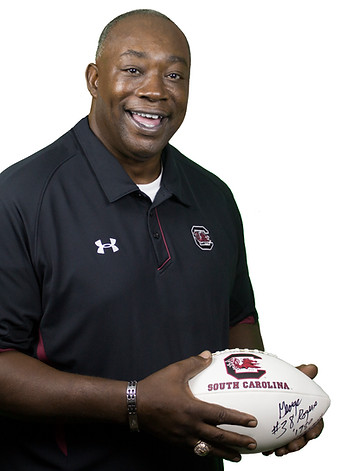

George W. Rogers, Jr. | Chairman and CEO
George Rogers was born on December 8, 1958, in Duluth, Georgia.
He showed an interest in football at an early age, but his family could not afford the $2 that was needed to pay for sports insurance. George’s life changed drastically when his aunt, Othella Rogers, allowed him to live with her. She made him attend church and school regularly.
That's when he joined the football team at Duluth High School and began to thrive.
He was highly recruited out of high school but committed to the University of South Carolina because Coach Jim Carlen told him that he would get to play during his freshman year. Because of his size, George seemed destined to play fullback however, in college, he played at the tailback position.
He rushed for 1,006 yards during his sophomore year despite sharing time with fellow teammate Johnnie Wright. George was launched into the national spotlight his junior year as he was one of the best rushers in the country with 1,681 yards.
South Carolina ended with an 8-3 record in 1980, setting the stage for the senior and Heisman candidate. Rogers’ final season, with 1,781 yards was the best in the nation, and it earned him a spot as a finalist for the Heisman Trophy.
George was named winner of the 1980 Heisman Trophy, beating out an impressive group of players including Pittsburgh defensive lineman Hugh Green and Georgia running back Herschel Walker.
That year, he also earned a spot on the All-American team, and all First Team honors. Being a Heisman has afforded George many unbelievable opportunities and is one of his most memorable honors.
In 1981, George was the number one draft pick for the New Orleans Saints. After playing 4 years for the Saints, he was traded to the Washington Redskins with the team winning Super Bowl XXII. He played 7 seasons in the NFL.
He is a member of the College Football Hall of Fame, the Georgia Football Hall of Fame, the South Carolina Football Hall of Fame (with the Blanchard/Rogers Award partially named in his honor) and in 2015, the University of South Carolina honored him with a statute on campus at Williams Brice Stadium.